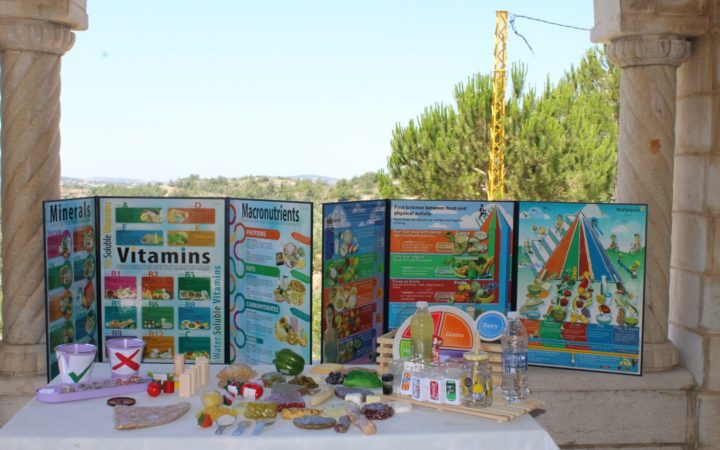
Posted on
A team from the Nutrition Department at the Saint Joseph University of Beirut, led by Cynthia Helou – Senior Lecturer – Head of the Food Technology Master and Tatiana Papazian – Assistant Professor at the Faculty of Pharmacy and licensed dietitian – conducted fieldworks in thirteen guesthouses of two Lebanese Biosphere Reserves: Jabal Moussa and Shouf, during the months of June and July 2021.
Cynthia and Tatiana provided the excursus of their fieldwork and project.
“The main objective of the project was to optimize the meal formulas that these guesthouses offer to their clientele. The combination of regional ingredients and food items was customized according to the dietary needs of specific niches, all while maintaining the traditional know-how and promoting the local Terroir products.
The second aim was to provide personalized guidance regarding food safety, good hygiene practices and nutritional values of meals designed for each guesthouse.
Each guesthouse was first assessed regarding the current menu-formulas, the recipes, the ingredients, the practices and the preferences of each guesthouse’s cook, as well as the food safety practices. Based on the findings, specific targeted recommendations were formulated for each guesthouse, and updated menus were prepared backed with nutrition analysis. These new menus included nutrition tips and highlights, special logos and meal combinations targeting specific clients (hikers, seniors…).
Afterwards, tailored training sessions took place in each guesthouse. The skeleton was similar, but special highlights were made on specific subjects depending on each guesthouse’s precise needs (determined during the first assessment visit). The new menus were presented, explained and discussed with the guesthouse owners. In addition, customized one-on-one training took place regarding food safety, hygiene and basic nutrition. In order to ensure that the information was well assimilated by the attendees, and to avoid boredom or disinterest, the team chose to deliver the training contents through interactive games that required an energetic participation of the attendees.
A lot of effort was put into maintaining the authenticity of the menus, while combining food items to ensure they cover the nutritional needs of target groups. Other constraints were the preferences of each guesthouse owners regarding recipes and combinations. The team tried to create unique combinations for each guesthouse to avoid repetition and competition, especially for neighboring guesthouses. The tailored menus, tips related to nutrition, food safety and Mouneh making (terroir products) consolidated the knowledge of the guesthouse owners and provided them with new tools and ideas to attract health-oriented eco-friendly clients, eager to protect the local heritage and to maintain its sustainability.
Customizing the training sessions to the observations made during the inspection phase allowed the team to highlight and manage specific critical points for each guesthouse while still covering a large spectrum of topics. Special focus was given to particular issues at one guesthouse while other subjects were targeted in another guesthouse, where it was more pertinent. This helped the owners find solutions to problems they were facing or were reported by their previous clients. Since the trainings were done at their guesthouse and individually, the guesthouse owners felt more comfortable discussing their concerns and difficulties. The team also noted that the guesthouse owners were more receptive to new suggestions and recommendations, compared to trainings made in larger groups or in training centers. This approach proved its efficiency from the implication and the interaction of the owners during the sessions.
The team developed multiple documents for this project that were distributed to the guesthouses, to ensure a prolonged time impact of the information. Some of these documents were common to all the guesthouses (posters summarizing the most important elements regarding the food safety practices), while others were specific to each guesthouse (the individualized menus with new sections, appropriate nutrition and health related logos and highlights and caloric counts for each guesthouse; information sheets regarding some unique Terroir products such as “labneh”, “Serdeleh” and some local herbs; recommendation sheets for yogis and hikers).
The team also wished to provide the biosphere reserves (not just the guesthouses) with a unique communication tool that interested the hikers that visited them while boosting local products. A pamphlet on the importance of nutrition and hydration in preparation of, during and following a hike was prepared based on scientific data and using locally available examples of food items. While the content was the same, two sets of pamphlets were made, one for each biosphere, using photos taken during the team’s first series of visits. The format chosen for this document was pocket-size in order to be more practical for hikers who would get them just before setting for a trail.
For some guesthouses, the owners shared with the team their concerns regarding their visibility on social media, which is hindering their work. Thus, the team decided to add a new objective for this project by creating content to be used on these platforms. The material was different and unique for each guesthouse and consisted of photos, short video sequences and posts relating to cooking, nutrition and terroir.
Despite the Covid-19 pandemic and the sanitary restrictions it generated, particularly on the food service industry, and the dire economic conditions inflicting Lebanon, this project showed the role that academia and science can play in boosting even the most traditional businesses. Terroir products, traditional know-how and local customs were emphasized by nutritional highlights and arguments. This ensured a positive and sustainable impact by providing practical useful knowledge and new competing tools to the guesthouses.”
This fieldwork and project has been conducted in the framework of Edu-BioMed mobility activities.
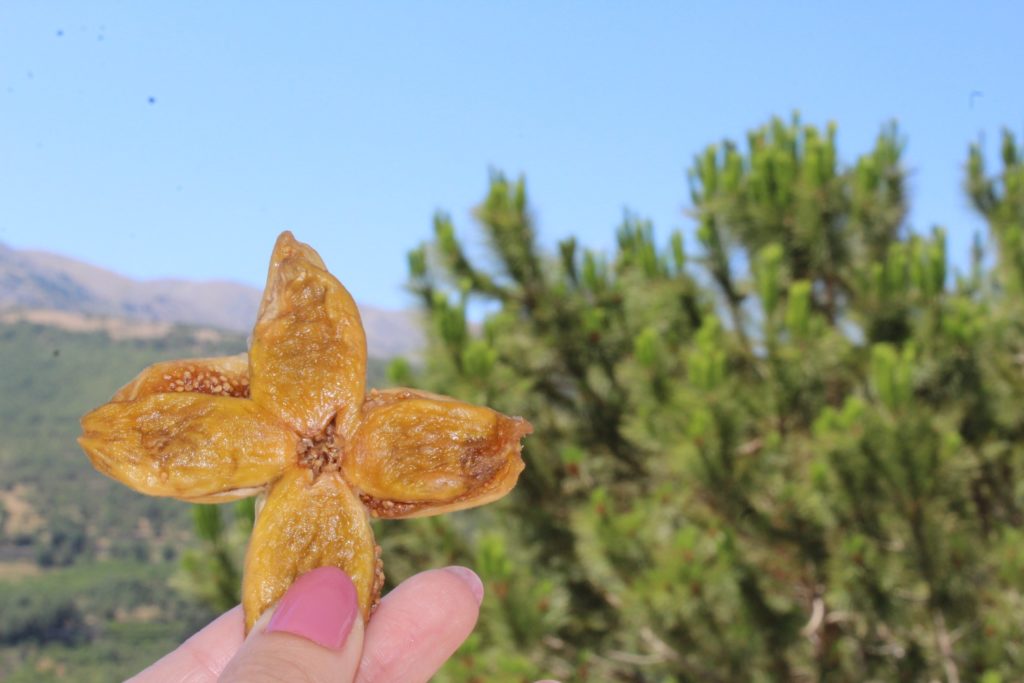
Dried figs from the Shouf Biosphere 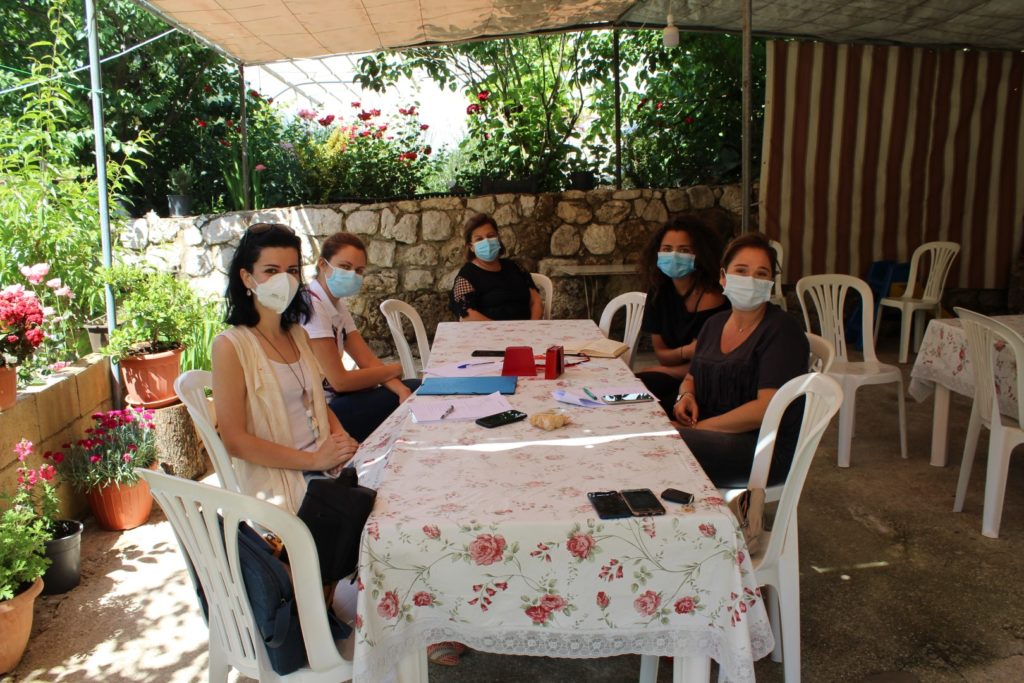
Some of the team members with Mrs Hoda Nader’s (Guesttable) at Jabal Moussa Biosphere Reserve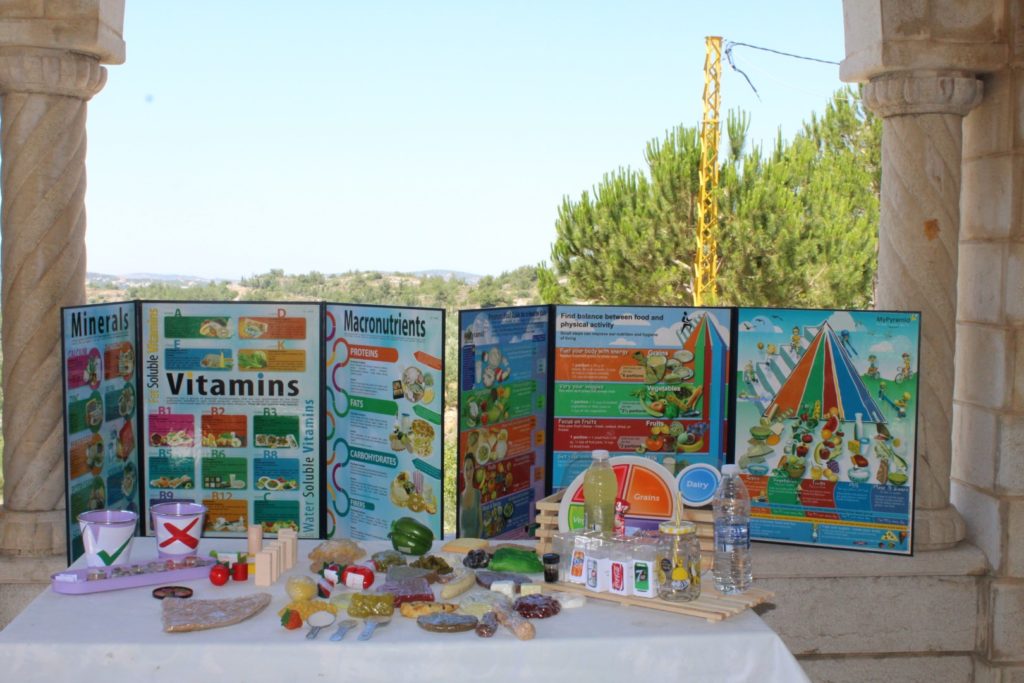
Nutrition 101 Training 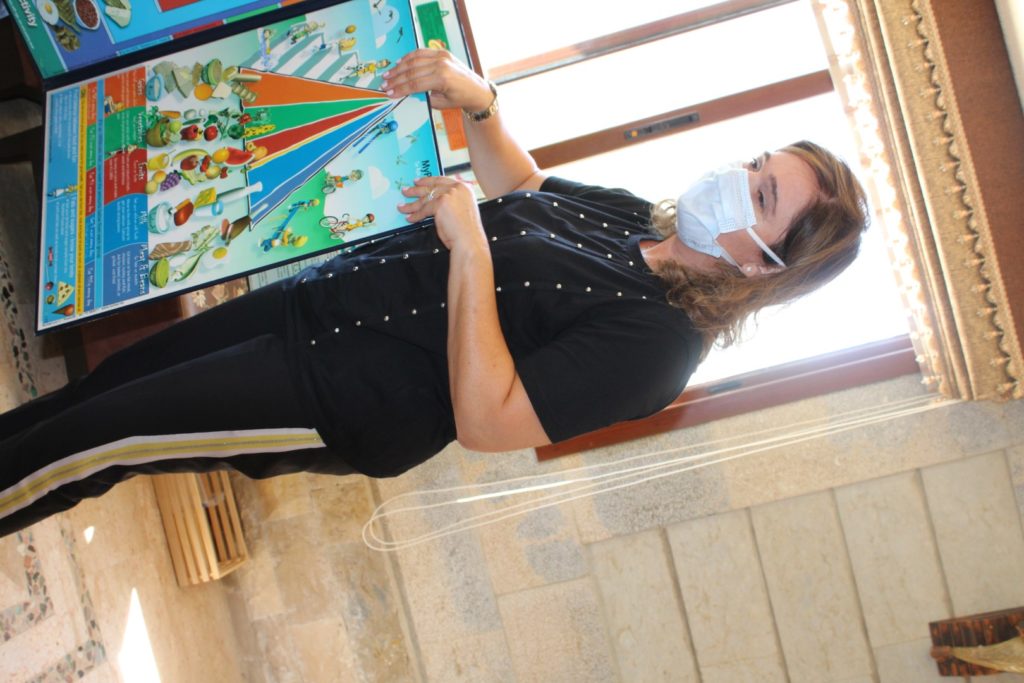
Dr. Tatiana Papazian during the training 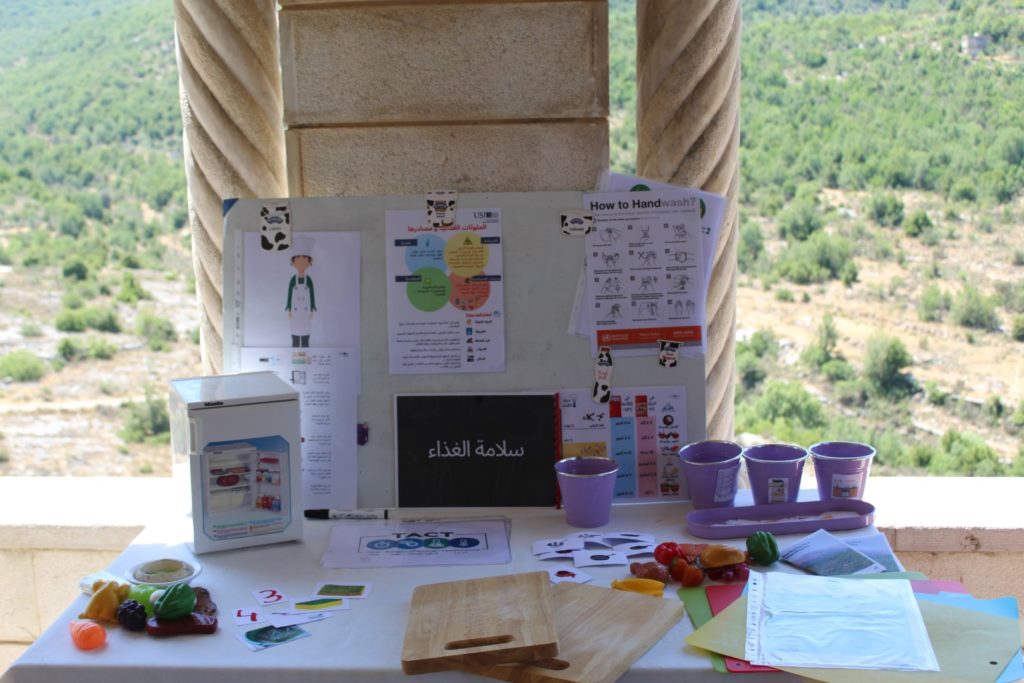
Food safety 101 Training 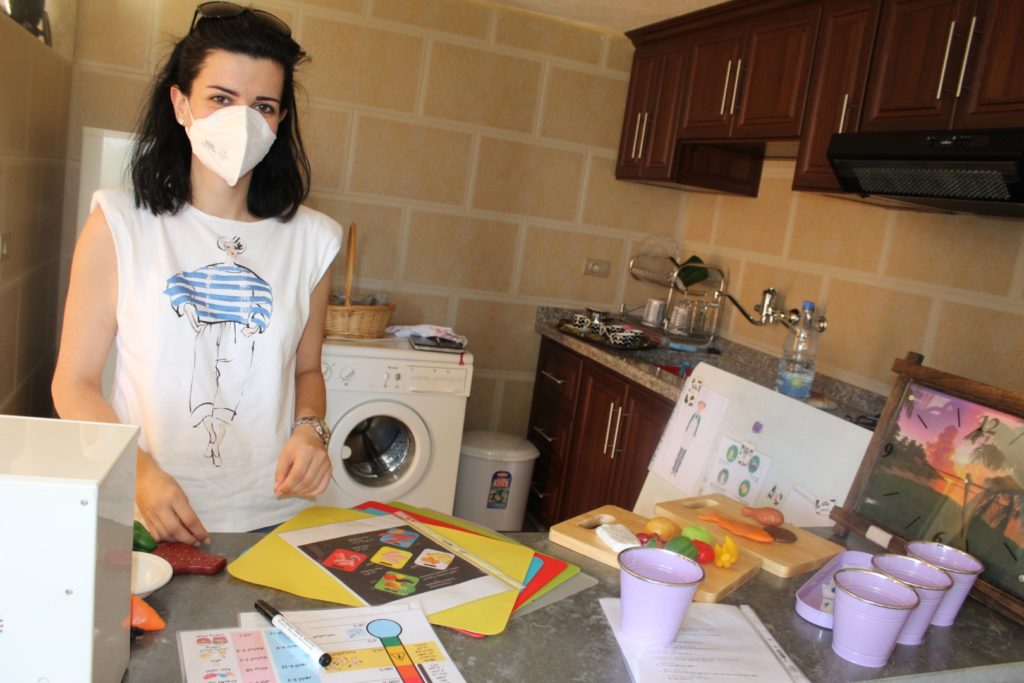
Dr. Cynthia Helou 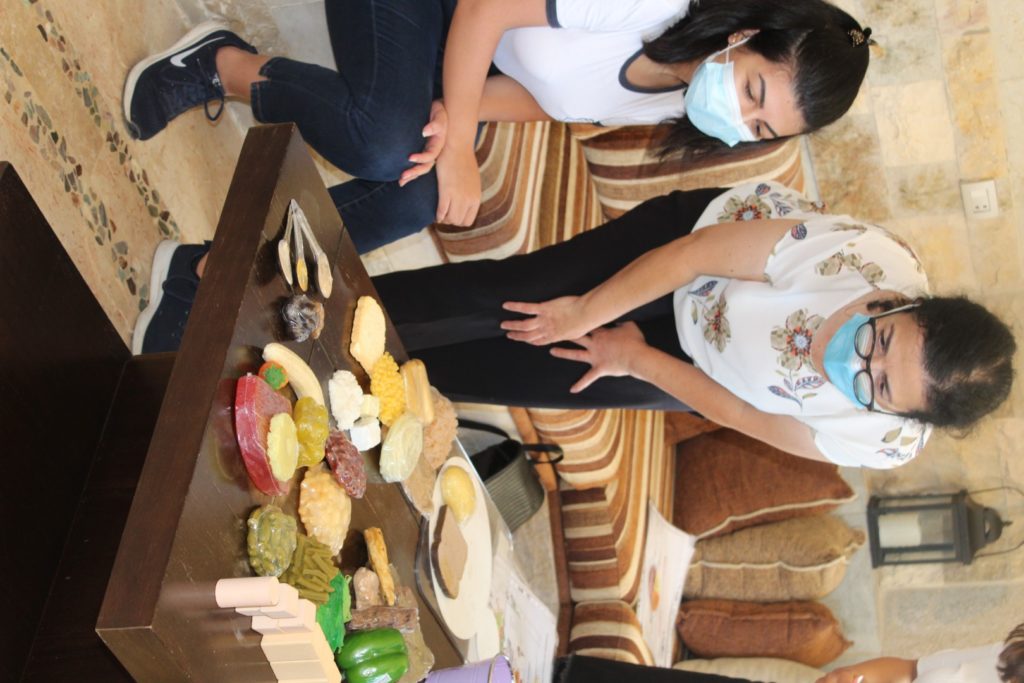
Guesthouse owners engaged in the training activities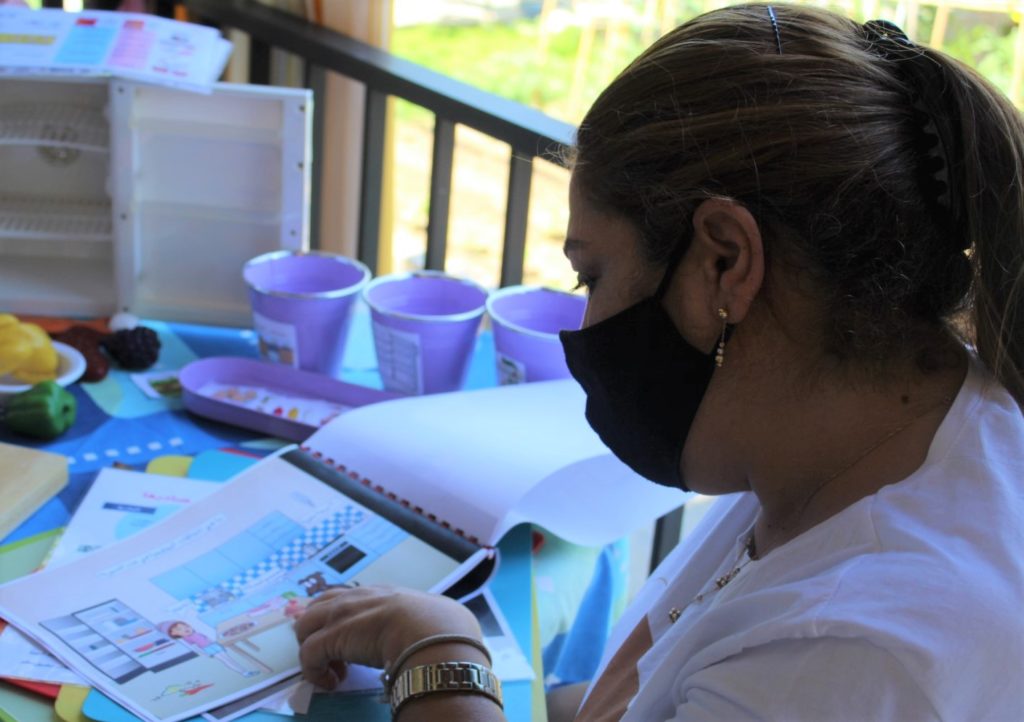
Guesthouse owners engaged in the training activities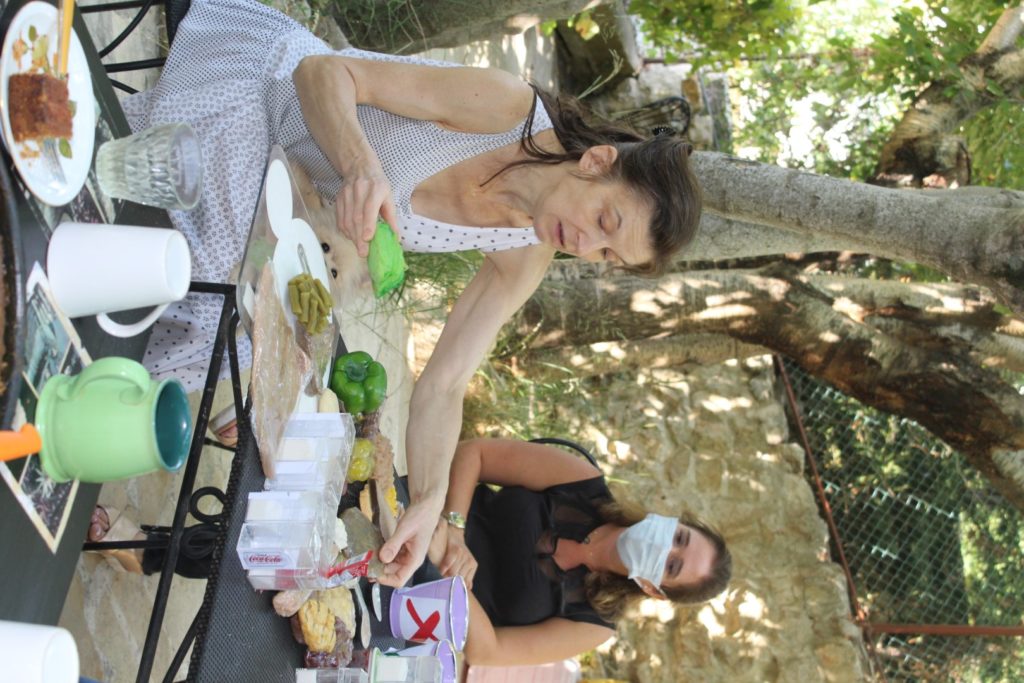
Guesthouse owners engaged in the training activities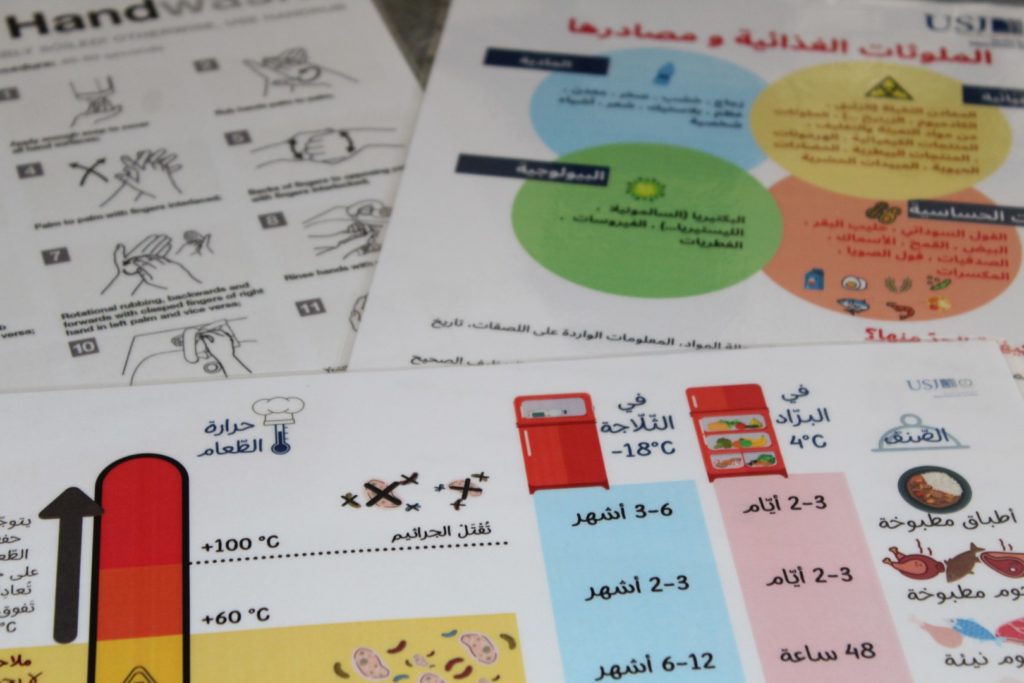
Some of the documents (menus, brochures & leaflets) prepared for the guesthouse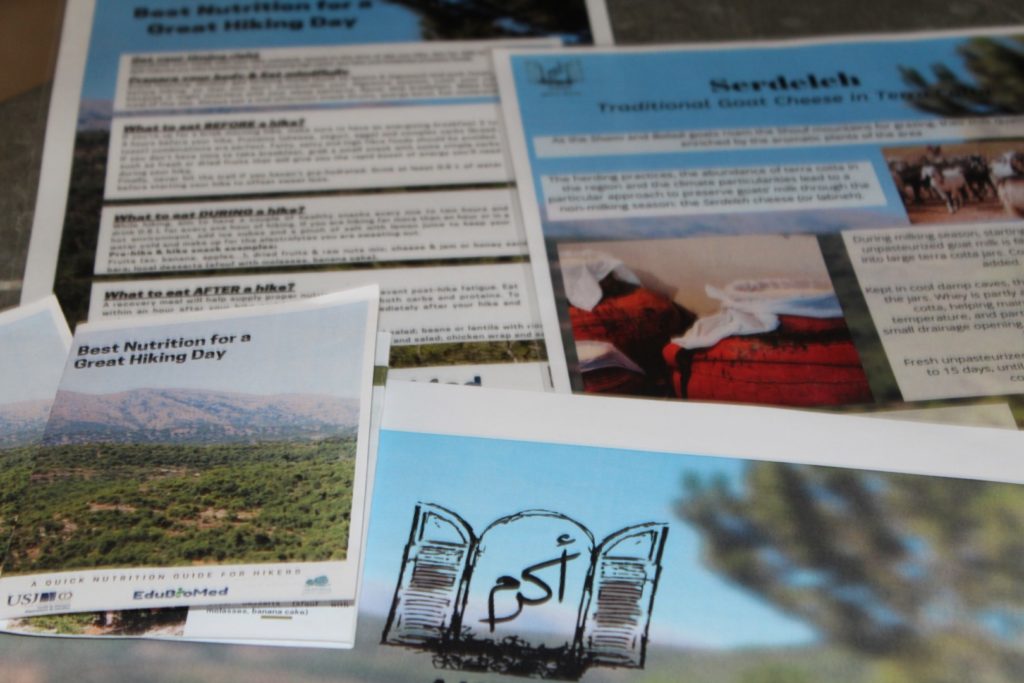
Some of the documents (menus, brochures & leaflets) prepared for the guesthouse 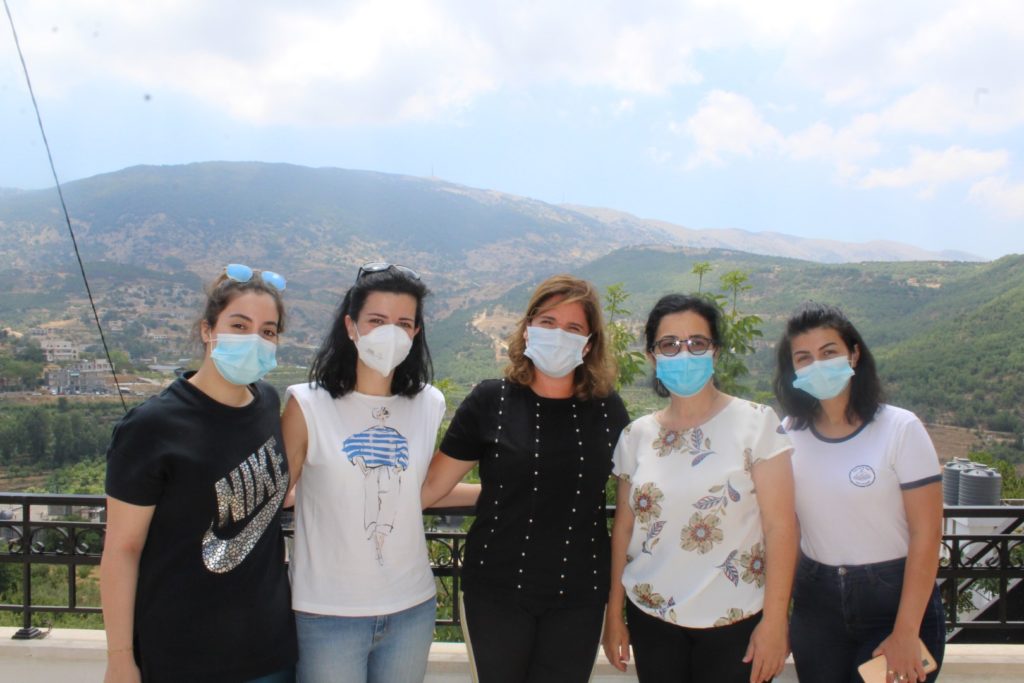
Some of the team members with Mrs May & Miss Maya (Akram Guesthouse, Shouf Biosphere Reserve)



